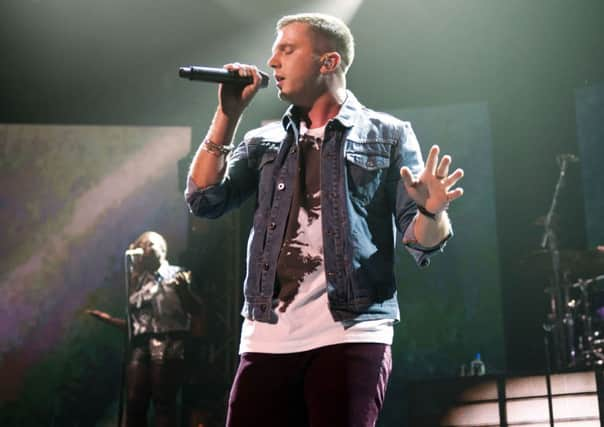Protest songs strike a chord with a new generation


THERE is a famous photograph of Woody Guthrie standing on stage with his guitar which he’s painted with the words, “This Machine Kills Fascists.”
It was a brief, but potent, message that transformed a simple musical instrument into a powerful protest weapon. Guthrie was a towering figure of the folk music movement and so, too, was Pete Seeger, whose death at the age of 94 was announced yesterday.
Advertisement
Hide AdAdvertisement
Hide AdSeeger was renowned for protest songs such as Where Have All The Flowers Gone and We Shall Overcome and became a standard bearer for political causes from nuclear disarmament to the Occupy Wall Street movement.
He isn’t the only person synonymous with protest music and over the years the likes of Bob Dylan, Joan Baez and Bruce Springsteen have all followed in his venerable footsteps.
Protest music, though, is as much about the songs themselves as the people who sing them and many are inextricably linked to a single cause. Strange Fruit, popularised by Billie Holiday, is a haunting tale about racism in America’s Deep South, while Give Peace A Chance became an anthem of the anti-war movement.
Will Kaufman, professor of American Literature and Culture at the University of Central Lancashire, says music and protest have a long and close association with each other. “Music has always been a fundamental part of protest, the civil rights movement was driven by music and protest songs run through human activism.”
Advertisement
Hide AdAdvertisement
Hide AdEven today, wherever there are picket lines in the world you’ll often find people singing protest songs.
“It fortifies the soul and fortifies their resilience to hold the line,” he says.
Prof Kaufman, who lives in Hebden Bridge, believes protest songs still serve a purpose in society.
“Plato was right, if you want to calm people and make them docile then get rid of music, and then musicians, because protest music is about grabbing people by the lapels and shaking them.”
Advertisement
Hide AdAdvertisement
Hide AdBut are they as relevant to the youth of today as they were to their predecessors back in the 1960s and 70s?
“If they’re engaged in politics then they’re engaged in protest music. How engaged they are with politics is another question.”
Dave Simpson, a writer and music journalism lecturer at the University of Huddersfield, doesn’t believe protest music is as prevalent as it once was. “I grew up in an era when protest songs were regularly in the charts and that doesn’t happen any more. I don’t think the songs have been diminished but artists are perhaps less inclined to rock the boat.
“Back in the 60s and 70s musicians were much more empowered to say what they felt and to speak out. They came from much more of a protest background and Pete Seeger is a good example of this.”
Advertisement
Hide AdAdvertisement
Hide AdIt wasn’t just folk singers who were writing protest songs. The Punk movement led to a wave of new bands like The Sex Pistols, The Clash and Sham 69 who produced a different, more vitriolic, type of protest music that was more about aggression than pacifism.
Simpson agrees that protest songs have changed but he doesn’t think they’ve lost their significance. “There’s still an appetite for protest music and it’s still being made today.”
He points to the hip hop song Ill Manors, by Plan B, written in response to the wave of riots that swept across the country in the summer of 2011. “It’s not a subtle protest song but it’s quite controversial and talks about what it’s like to be marginalised and living in an inner-city estate.”
He says the death of Margaret Thatcher last year sparked an unlikely protest song. “Ding-Dong! The Witch is Dead from the The Wizard of Oz film rose up the charts and became a kind of spontaneous protest song and it really divided opinion.”
Advertisement
Hide AdAdvertisement
Hide AdSimpson believes the global financial crash was a key moment. “For a long time it seemed we were on an upward curve and there was a lot of positivity in the 90s that bled into the next decade.
“But then we had the economic crash which shocked people and it’s at times like this that people turn to music. What we’re perhaps missing is an era-defining protest song but they’re still here and they’re still relevant,” he says.
“A song like Free Nelson Mandela helped get him released from prison because it pushed the global pressure to tipping point. It showed the power of protest music and that a simple song can change the world.”